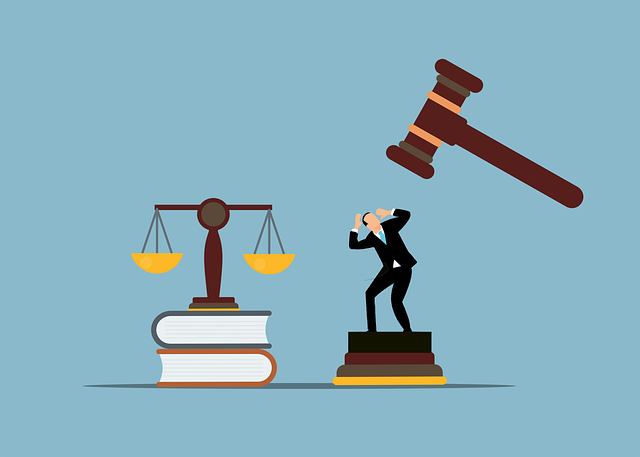Oregon's criminal defense system is governed by a comprehensive set of Oregon legal statutes and defense regulations, offering robust protections for the accused. These laws, including due process guarantees, the right to counsel, and specific defenses, provide a structured approach to challenging criminal allegations. Understanding these criminal defense basics Oregon—from definitions of crimes to procedural rules—is crucial for anyone navigating the state's justice system, ensuring fairness, and protecting individual rights. Key aspects involve a high prosecution burden of proof, strict rules on search and seizure, self-incrimination protections, and fair trial procedures at every stage, from arrest to appeals. Familiarize yourself with the Oregon Revised Statutes (ORS) for a thorough understanding of Oregon's legal framework.
“Dive into the intricate world of Oregon criminal defense laws, where a robust legal framework protects the rights of those accused. This comprehensive guide unravels Oregon’s legal statutes governing criminal defenses, highlighting key protections under its criminal code. From understanding the basics to navigating the impact of defense regulations, we explore the steps and resources essential for comprehending this complex topic. Unravel the legal framework that shapes Oregon criminal defense cases and gain valuable insights with our detailed analysis.”
- Understanding Oregon Criminal Defense Laws: An Overview
- Oregon Legal Statues Governing Criminal Defense
- Criminal Defense Basics in Oregon: Key Protections
- Oregon Defense Regulations and Their Impact
- The Legal Framework for Oregon Criminal Defense Cases
- Navigating Understanding Oregon Laws: Resources and Steps
Understanding Oregon Criminal Defense Laws: An Overview

Oregon’s criminal defense laws are governed by a complex web of state statutes and legal frameworks, providing individuals accused of crimes with specific rights and protections. Understanding these laws is crucial for anyone navigating Oregon’s justice system, as they outline the procedures for arrest, charging, trial, and sentencing. The legal framework ensures a balanced approach, aiming to safeguard the rights of the accused while also addressing public safety concerns.
At its core, Oregon criminal defense follows basic principles of due process, presuming innocence until proven guilty. This means that individuals facing charges have the right to legal counsel, the ability to confront accusers, and protection from self-incrimination. Oregon legal statutes detail these rights and set forth various defenses available to accused persons, offering a framework for challenging criminal allegations effectively.
Oregon Legal Statues Governing Criminal Defense

Oregon’s legal statutes provide a robust framework for criminal defense practices within the state. Understanding these laws is crucial for both accused individuals and their legal representatives to navigate the complex criminal justice system effectively. The Oregon Revised Statutes (ORS) encompass various codes that define crimes, outline procedural rules, and establish rights for defendants.
The ORS guides criminal defense basics in Oregon by detailing permissible defenses, such as self-defense or lack of mental capacity, and setting forth guidelines for evidence presentation and witness examination. Additionally, these statutes regulate pretrial procedures, including arrest, search, and seizure, ensuring that law enforcement adheres to specific protocols to protect individual liberties. Understanding the Oregon legal framework enables defendants and their attorneys to assert appropriate defenses, ensure procedural fairness, and ultimately achieve a just outcome in criminal cases.
Criminal Defense Basics in Oregon: Key Protections

In Oregon, the criminal defense laws are a robust legal framework designed to protect individuals accused of crimes. The state’s legal statutes provide several key protections for defendants, ensuring they receive a fair trial and due process. Oregon criminal defense laws emphasize the burden of proof lies with the prosecution, meaning the state must present substantial evidence to establish guilt beyond a reasonable doubt. This standard is a cornerstone of the legal framework in Oregon, reflecting a strong commitment to preserving the rights of those accused.
Understanding Oregon laws involves recognizing the state’s strict rules regarding search and seizure, self-incrimination, and the right to an attorney. Defendants are entitled to consult with legal counsel before and during their trial, ensuring they have a robust defense. The Oregon defense regulations also cover issues like bail, plea bargains, and sentencing, providing guidelines that balance public safety with the presumption of innocence. These basics of criminal defense in Oregon create a balanced legal system, safeguarding both the rights of individuals and the interests of society.
Oregon Defense Regulations and Their Impact

Oregon’s criminal defense laws are governed by a comprehensive set of legal statutes that provide a robust framework for protecting individuals accused of crimes. Understanding these regulations is crucial for anyone navigating Oregon’s justice system. The state has established various defenses and procedures to safeguard the rights of those facing criminal charges, ensuring a fair trial process.
The Oregon legal framework offers a range of defense options, from challenging the admissibility of evidence to raising doubts about intent or self-defense. These regulations impact every stage of a criminal case, from initial arrests to final appeals. By understanding their rights within this legal framework, individuals can better prepare to defend themselves against criminal allegations and ensure their cases are handled in accordance with Oregon criminal defense laws.
The Legal Framework for Oregon Criminal Defense Cases

Oregon’s criminal defense laws are governed by a complex web of legal statutes and regulations, providing a robust framework for individuals facing criminal charges in the state. Understanding this legal framework is essential for anyone navigating Oregon’s criminal justice system. The basis of Oregon criminal defense lies in the U.S. Constitution and the state’s own legal codes, which safeguard the rights of the accused.
The Oregon legal statutes outline various aspects of criminal proceedings, including definitions of crimes, penalties, and procedural rules. These laws aim to ensure fairness and due process by establishing guidelines for law enforcement, prosecutors, and defense attorneys. By understanding these regulations, individuals can better comprehend their rights and build a solid defense strategy.
Navigating Understanding Oregon Laws: Resources and Steps

Navigating Oregon’s complex legal framework can be daunting for those unfamiliar with Oregon criminal defense laws and legal statutes. Understanding your rights is crucial when facing criminal charges, so it’s essential to take a systematic approach to grasping this intricate system. Start by familiarizing yourself with the Oregon Revised Statutes (ORS), which encompass all state laws. The ORS provides a comprehensive overview of criminal offenses, defenses, and procedures.
Utilize various resources designed to simplify this process. The Oregon Department of Justice offers informative guides on criminal defense basics in Oregon, making it easier to comprehend your rights. Legal aid organizations and non-profit groups dedicated to legal education can also provide valuable support. Step-by-step tutorials and Q&A sections help demystify the legal framework, ensuring you’re well-prepared to navigate Oregon’s criminal defense regulations.
